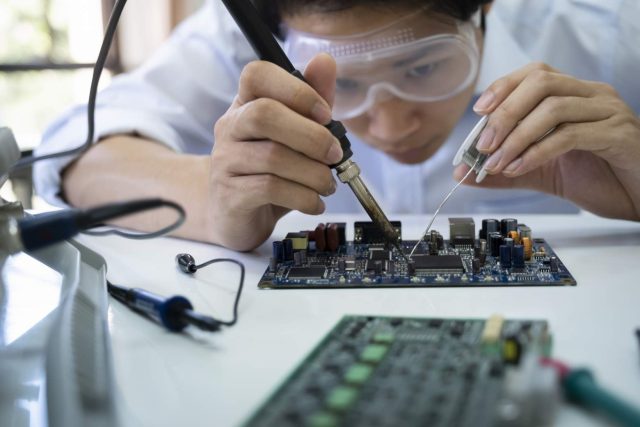Electrical engineers are responsible for designing, building and maintaining the electrical systems of a wide range of industries. Electrical engineering is one of the oldest branches of engineering, with its origins dating back to the late 19th century. The profession has seen many changes in recent years as advances in technology have led to a greater emphasis on renewable energy sources such as solar power and wind turbines.
What do you do in electrical engineering?
Electrical engineers design and supervise the manufacturing, installation, and testing of electrical systems. They develop new methods for manufacturing electrical parts, devices and equipment. Electrical engineers also supervise their installation into electric power generating stations, electric utility systems and other industrial facilities.
Electrical engineers are employed in all types of organizations including:
- Electrical manufacturers
- Industrial engineering firms that design primarily electrical systems; they may also design other types of machinery or equipment as well as buildings)
- Research laboratories associated with universities or private industry
Electrical systems of automobiles
As an electrical engineer, you would design the electrical systems of automobiles. Electrical engineers also design the electrical systems of airplanes and buildings, as well as power plants.
Systems of airplanes
Electrical engineers design the electrical systems of airplanes. They also test and supervise the manufacturing, installation and testing of electrical systems in airplanes.
Systems of buildings
Electrical engineers design the electrical systems of buildings, including lighting, heating and cooling systems, communications equipment, electronics and power distribution. They also install these systems in buildings. Electrical engineers also test electrical systems to make sure they are working correctly. This is important because if there is a problem with an electrical system it could cause serious injury or damage property.
Electrical engineers use computer programs that simulate how electricity flows through wires to design new products such as robots or cell phones before actually building them in the real world.
Electrical systems of power plants
Electrical engineers design and supervise the manufacturing, installation, and testing of electrical systems. They also design and test equipment used in electric power generation plants to produce electricity.
The work done by electrical engineers varies depending on what they specialize in. Some specialize in power generation while others focus on machinery or airplanes. Regardless of their specialty, all electrical engineers follow a similar process when designing an electrical system:
- Define the problem. What do we want this system to do? How will it affect people or the environment? Who are we designing it for?
- Collect information about the existing situation (e.g., infrastructure) and any regulations that may apply to your project (e.g., safety codes). This helps you understand what’s already been done so you can build upon it for efficiency’s sake—and make sure nothing is missing from what should be present!
- Find out if any studies have already been done on this issue; if so, read through them carefully so they don’t leave out crucial details like projected costs or schedules due date which could lead you astray later down line when trying implement those recommendations into actual practice.
Electrical systems of machinery
Electrical engineers design the electrical systems of machinery. This may include components such as motors, generators, transformers and generators. Electrical engineers often work in conjunction with mechanical engineers to design and test machines that use electricity to perform a specific task.
Conclusion
Electrical engineering is a very broad field with many different applications. To summarize what electrical engineers do, they design, test and supervise the manufacturing of electrical systems. They also perform research related to electricity as well as other fields like physics and mathematics. Electrical engineers have helped develop countless devices that make our lives easier every day such as computers, cell phones or even light bulbs!





Leave a Reply